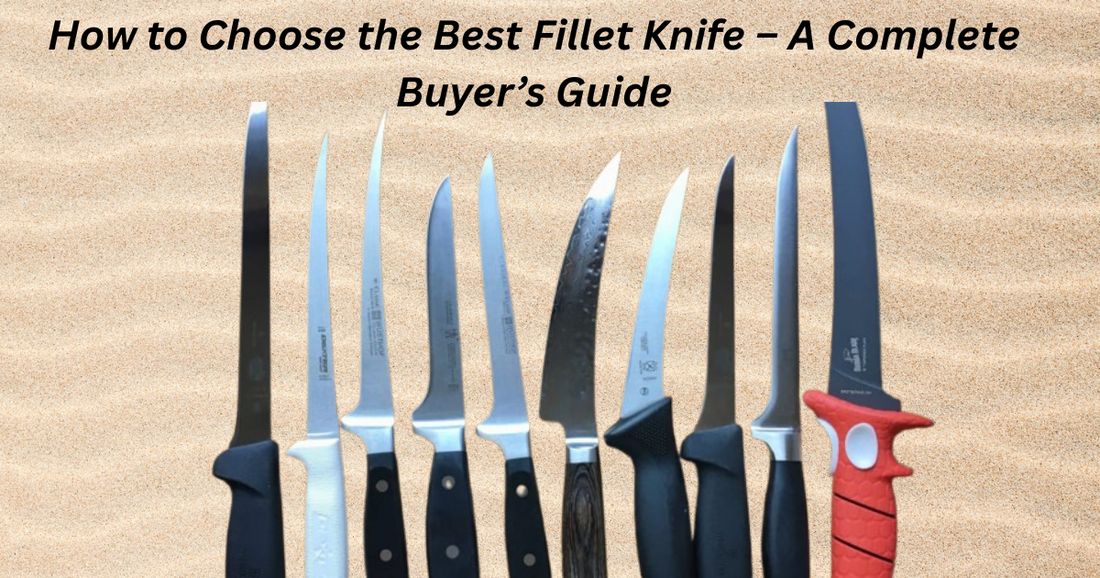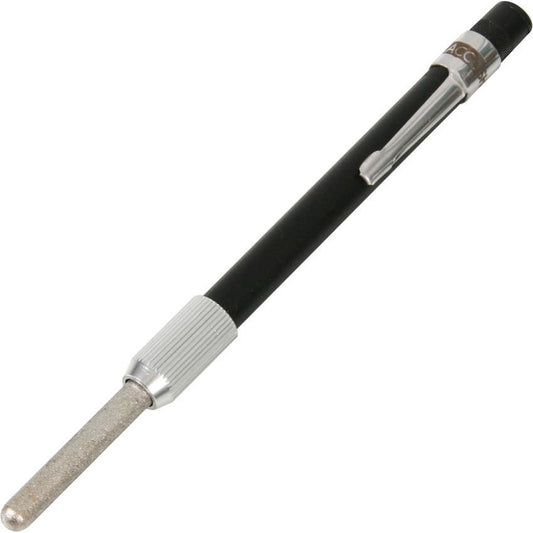
How to Choose the Best Fillet Knife – A Complete Buyer’s Guide
Share
A high-quality best fillet knife is essential for anglers and home cooks who want precise, clean cuts. Whether preparing fresh fish or deboning meat, the right fillet knife ensures efficiency and safety. But with so many options available, how do you choose the best one?
This guide covers everything you need to know, including:
Types of fillet knives
Key features to consider
Top fillet knife brands
Maintenance tips
What is a Fillet Knife?
A fillet knife is a long, thin, flexible blade designed for removing bones and skin from fish or meat. Its sharp edge and flexibility allow smooth, controlled cuts without damaging delicate flesh.
Types of Fillet Knives
| Type | Best For | Blade Length |
|---|---|---|
| Flexible Blade | Fish fillets | 6-9 inches |
| Semi-Flexible | Larger fish & meat | 7-10 inches |
| Stiff Blade | Heavy-duty cutting | 9-12 inches |
Key Factors to Consider When Choosing a Fillet Knife
1. Blade Material
The blade material determines sharpness, durability, and corrosion resistance.
Stainless Steel – Resists rust, easy maintenance (best for beginners).
High-Carbon Steel – Holds an edge longer but requires more care.
Ceramic – Ultra-sharp, lightweight, but brittle.
2. Blade Flexibility
Flexible Blades – Ideal for delicate fish like trout or salmon.
Semi-Flexible – Versatile for medium-sized fish.
Stiff Blades – Best for thick-skinned fish or meat.
3. Blade Length
6-7 inches – Small fish (panfish, perch).
7-9 inches – Medium fish (bass, walleye).
9+ inches – Large fish (salmon, tuna).
4. Handle Comfort & Material
Rubber/TPR – Non-slip grip (best for wet conditions).
Wood – Classic look but requires maintenance.
Plastic/Composite – Durable and lightweight.
5. Tang (Knife Construction)
Full Tang – Strongest, most durable.
Partial Tang – Lighter but less sturdy.
Top Fillet Knife Brands & Products
Here are some of the best fillet knife brands known for quality:
1. Rapala
Known for ultra-sharp stainless steel blades.
Ergonomic handles for comfort.
Best for freshwater fishing.
2. Bubba Blade
High-quality, flexible blades.
Non-slip grips.
Great for saltwater fishing.
3. Dexter-Russell
Professional-grade fillet knives.
High-carbon steel options.
Trusted by chefs and anglers.
4. Victorinox
Swiss-made precision.
Affordable yet durable.
Ideal for home cooks.
How to Maintain Your Fillet Knife
Proper care extends your knife’s lifespan.
Cleaning Tips
Rinse with fresh water after each use.
Hand wash with mild soap (avoid dishwashers).
Dry immediately to prevent rust.
Sharpening Your Fillet Knife
Use a honing rod for regular maintenance.
A whetstone (600-1000 grit) for sharpening.
Electric sharpeners for quick touch-ups.
Storage Tips
Store in a knife sheath or magnetic strip.
Avoid tossing in a drawer (prevents blade damage).
Final Thoughts
Choosing the best fillet knife depends on your needs—whether for fishing or cooking. Consider blade material, flexibility, and handle comfort before buying. Top brands like Rapala, Bubba Blade, and Dexter-Russell offer excellent options for every budget.Trust platform by black country out door
Fillet Knife FAQs
Q: What’s the best fillet knife for beginners?
A: A 6-7 inch stainless steel blade (like Rapala or Victorinox) is ideal.
Q: Can I use a fillet knife for meat?
A: Yes, especially for deboning chicken or trimming fat.
Q: How often should I sharpen my fillet knife?
A: After 5-10 uses, depending on cutting frequency.






